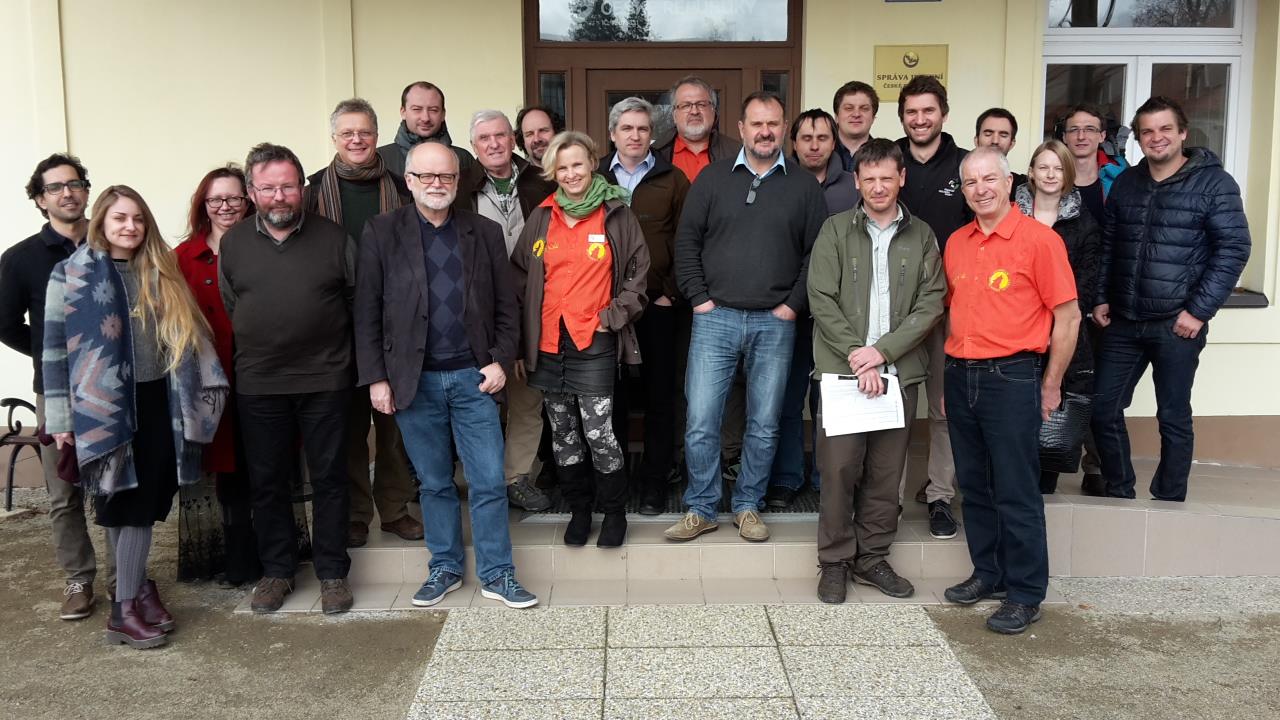Wilderness in Central and Eastern Europe
Bohemian Switzerland National Park, Czech Republic © Park Archive
Wilderness represents a fundamental element of Europe’s natural heritage. It is characterised by areas large enough to sustain the ecological functioning of natural processes and the shaping of natural structures. Despite their naturalness, free functioning natural processes, and the absence of developments, they can provide environmental, social, and economic benefits for local communities, landholders and general society.
During the last 15 years, wilderness (and the protection of natural processes) has gained the deserved space in the European nature conservation sector and an important step was the adoption of the “European Parliament Resolution on Wilderness in Europe”, in February 2009. Later, in 2013, the European Commission launches a document to support the Management of terrestrial wilderness and wild areas within the Natura 2000 Network – Guidelines on Wilderness in Natura 2000.
However, despite the definition of wilderness released by the European Commission, the approach is visibly not unified in Central and Eastern Europe, with some countries having already their own strategy to define and select suitable areas, while others are still at the beginning of the process.
Therefore, with the aim of bringing together relevant experts in wilderness from this European region Europe, EUROPARC Section Central and Eastern Europe and the IUCN World Commission on Protected Areas, organised an internal workshop on wilderness.
Workshop: Wilderness in Central and Eastern Europe
wilderness definition and its protection in Central and Eastern Europe countries
In February 2017, 25 representatives from Czech Republic, Slovakia, Germany, Austria, Hungary, Slovenia and Poland met in Průhonice (15km from Prague) to discuss the current situation, the challenges and opportunities of Wilderness in Central and Eastern Europe.
The main goal of the Internal Workshop was to have designated experts on wilderness protection from the Central and Eastern Europe to share information about their country experiences and approaches, and thus allow participants to learn lessons from other countries and discuss the future development of the topic in this region. Participants represented protected areas, governmental agencies, NGO’s and scientific/educational institutions.

All presentations are now available for download below, along with the sound recording of each presentation. Click on the links below or check all recordings on youtube.
Wilderness in Austria
- FILM, Protection of Wilderness and Natural Processes in Austria, WWF Austria, Bernard Kohler
- FILM, Point of view of a National Park, Hohe Tauern National Park, Wolfgang Urban
Wilderness in Czech Republic
- FILM, Point of view of a national park, Bohemian Switzerland National Park, Handrij Hartel
- FILM, Point of view of state administration, Ministry of the Environment
- FILM, Point of view of an NGO, Friends of the Earth Czech Republic, Joramír Bláha
Wilderness in Germany
- FILM, Part I:National Strategy, scientific background, and actual challenges, German Federal Agency for Nature Conservation, Uwe Riecken
- FILM, Part II: Cooperations, management and communication, Frankfurt Zoological Society, Manuel Schweiger
Wilderness in Hungary
- FILM, Point of view of a national park, Hortobágy National Park Administration, Gábor Szilágyi
Wilderness in Poland
- FILM, Protection of natural processes in Poland, Naturalists Club Poland adn CEEWeb for Biodiversity, Pawel Pawlaczyk
Wilderness in Slovakia
- FILM, Point of view of NGO
- FILM, Point of view of State administration, Czech University of Life Sciences Prague, Martin Mikoláš; and State Nature Conservancy of the Slovak Republic, Jan Kadlecik
Wilderness in Slovenia and Dinaric Arc
- FILM, Wilderness in Slovenia & selected examples from Dinaric Arc countries, WWF Adria, Martin Solar
Case Studies
- FILM, UNESCO world heritage: nomination of Primeval Beech Forests in Europe, E.C.O. Institute of Ecology, Klagenfurt am Wörthersee, Michael Huber
- FILM, Wilderness in Eastern Europe – challenges and opportunities, European Wilderness Society, Vlado Vancura
- FILM, Low Land wilderness – the Pentezug Project, Hortobágy National Park Administration, Gábor Szilágyi